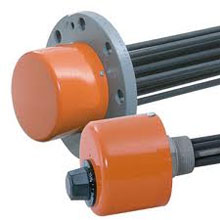
Electric Heaters Resources
- Home
- Efficient Electric Heaters
- Electric Heaters for Different Rooms
- Outdoor Electric Heaters
- Portable Electric Heaters
- 12 Volt Electric Heaters
- 220 Volt Heater
- 3 Phase Electrical Heater
- Above Ground Pool Electric Heater
- Antique Electric Heaters
- Baseboard Electronic Heaters
- Bathroom Electric Heaters
- Best Electric Heaters
- Buy Electric Heaters
- Car Electric Heaters
- Ceiling Electric Heaters
- Ceiling Mounted Electric Heaters
- Ceramic Electric Heaters
- Cheap Electric Heaters
- Commercial Electric Heaters
- Compact Electric Heaters
- Convection Electric Heaters
- DC Electric Heaters
- Economical Electric Heaters
- Efficient Electric Heaters
- Electric Heater Reviews
- Electric Heater With Thermostat
- Fahrenheat Electric Heaters
- Fan Forced Electric Heaters
- Fireplace Electric Heaters
- Flat Panel Electric Heaters
- Floor Electric Heaters
- Forced Air Electric Heaters
- Free Standing Electric Heaters
- General Electric Heaters
- Greenhouse Electric Heaters
- Halogen Electric Heaters
- Hanging Electric Heaters
- Heavy Duty Electric Heaters
- High Efficiency Electric Heaters
- Home Electric Heaters
- In Wall Electric Heaters
- Indoor Electric Heaters
- Industrial Electric Heaters
- Infrared Electric Heaters
- Infrared Electric Heater Reviews
- Large Electric Heaters
- Large Room Electric Heaters
- Low Wattage Electric Heaters
- Marine Electric Heater
- Mini Electric Heaters
- Non Electric Heaters
- Oil Electric Heaters
- Oil Filled Electric Heaters
- Overhead Electric Heaters
- Panel Electric Heaters
- Patio Electric Heaters
- Plug in Electric Heaters
- Process Electric Heaters
- Radiant Electric Heaters
- Recessed Electric Heaters
- Residential Electric Heaters
- RV Electric Heaters
- Safe Electric Heaters
- Small Electric Heaters
- Small Portable Electric Heaters
- Solar Electric Heaters
- Spa Electric Heaters
- Space Electric Heaters
- Swimming Pool Electric Heaters
- Toe kick Electric Heaters
- Tubular Electric Heaters
- Types of Electric Heaters
- Used Electric Heaters
- Vintage Electric Heaters
- Wall Electric Heaters
- Warehouse Electric Heaters
- Electric Heaters FAQ
Process electric heaters
Process electric heaters are normally used to heat elements such as water, oil, liquid solution and gasses. To heat these elements with different chemical compounds would require process electric heaters that can handle higher wattage.
Therefore, you will most probably see process electric heaters in industrial areas as opposed to domestic places. Similar to the indoor electric space heater, the process electric heaters are extremely energy efficient because all the energy consumed is utilized to the maximum. There are many types of process electric heaters such as immersion heaters, tubular heaters, and circulation heaters to name a few
Immersion heaters
Immersion heaters come in two forms, the pipe plug immersion heater and the flanged immersion heaters. The pipe plug immersion heater is usually installed on walls of tanks using a regular piping. They come in different measurements, heat capacities and materials depending on its function whether it is to heat oil, water, or other liquid solutions. On the other hand, the flanged immersion heater is capable of handling higher kilowatt ratings.
Tubular element heaters
Tubular element heaters are multipurpose process heaters. This is due to its ability to be shaped into any configuration to heat air, gases, liquids and surfaces. Tubular element heaters are mainly utilized for absolute submersion into water, oil, solvents and etc. Besides that, flat and round surface tubular elements is capable to heat up surfaces.
Circulation heaters
Circulation heaters are solid process heaters created to heat moving or flowing liquid or gases. These circulation heaters are usually found in factories that require nitrogen, steam, and other chemicals. Circulation heaters are practical for heating purified and inert gases and liquids such as de-ionized water. Circulation heaters are vital for operations in the petrochemical industry, the offshore industry and the food industry.
Characteristics of Good Process Electric Heaters :
- Flexible
- Process heaters should be designed to be flexible. In other words, the heater should be able to meet your unique application requirements. A process heater that meets the application requirements would ensure that the entire manufacturing process is in operating smoothly and on schedule.
- Efficient
- Secondly, process heaters should be energy efficient. Industries are already facing price hike on raw materials. Therefore, an energy efficient process heater would significantly help to reduce cost. A good process heater should be able to reach optimal thermal efficiency to reduce energy consumption.
- Clean
- With ever growing emphasis on creating a sustainable environment, the process heater should be eco-friendly. This means that the manufacturer has to adhere to standards set in place by regulatory bodies to ensure the lowest emission of green house gasses possible.
- Advanced
- A decent process heater should be equipped with the latest technology. Operating a process heater should be a breeze when its controls are computerized. A state of the art computerized system for the process heater would also allow easy monitoring.
- Versatile
- A multipurpose process heater is able to heat various fluids and liquid solutions from simple H20 and to more the more complex such as carbon tetrachloride. It should also be able to withstand different pressures and temperatures.
